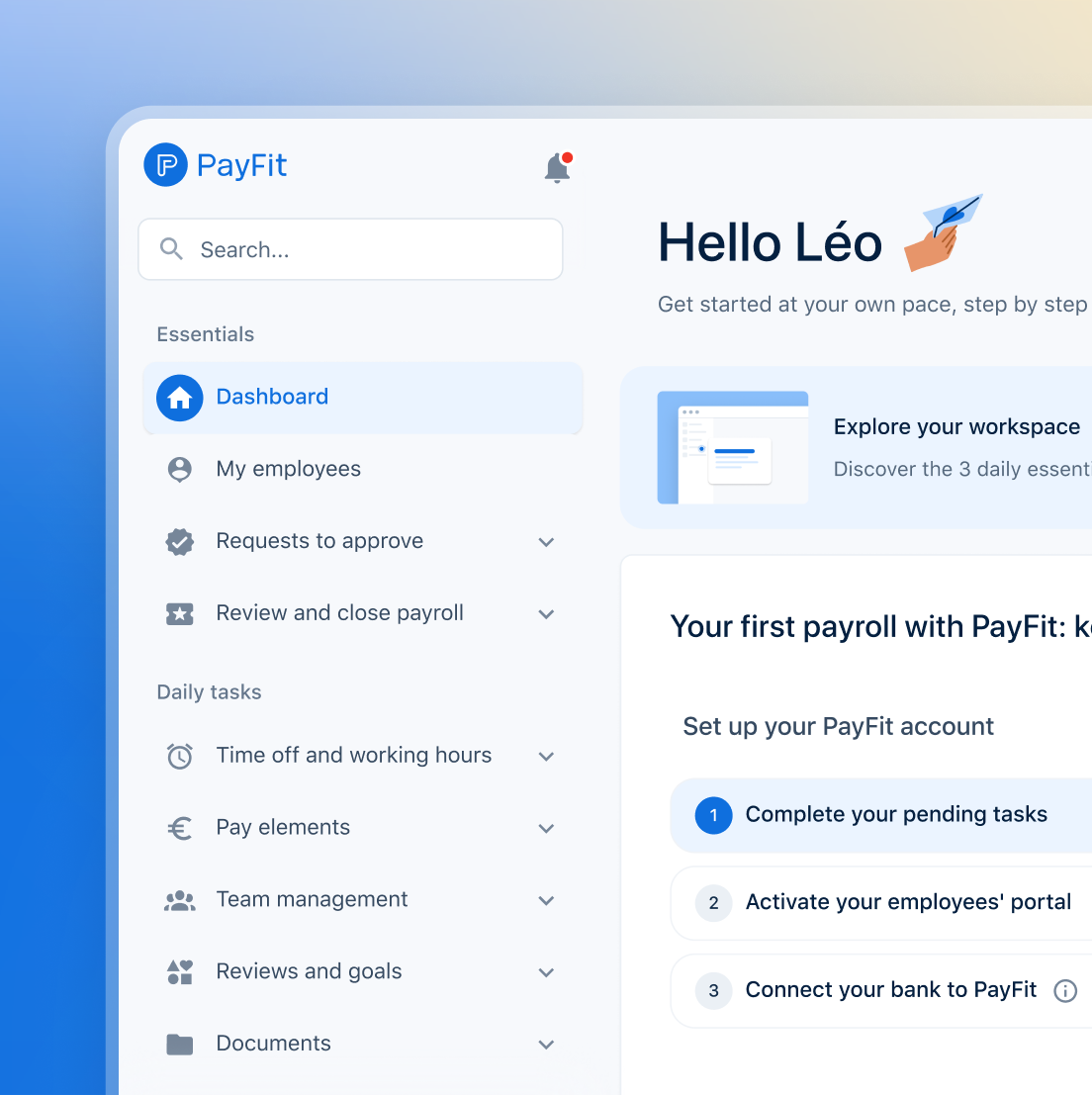✨ Health insurance, now in PayFit - learn more
💷 All the rates & thresholds you need to know for 25/26...right here
✨ The Payroll Journey: Start, Scale & Succeed Globally - learn more
✨ Health insurance, now in PayFit - learn more
💷 All the rates & thresholds you need to know for 25/26...right here
✨ The Payroll Journey: Start, Scale & Succeed Globally - learn more

Performance appraisals are a vital strategic instrument for any growing business in the UK. They provide a structured way to review an employee’s performance and overall contribution. For HR leaders, establishing an effective appraisal system should be a top priority. This article explores the essentials of performance appraisals, from their definition and purpose through to best practices and available tools. In doing so, we will provide you with a comprehensive understanding of staff performance appraisals to help your business thrive.
Simply put, performance appraisals are a regular review of a person’s contribution to the company. It often takes the form of a formal meeting in which a manager and an employee discuss strengths, weaknesses and recent progress. The purpose is to offer constructive feedback, establish clear targets for the future, and identify areas for growth and improvement. A well-executed appraisal helps align personal targets with broader company aims, which is fundamental for a growing business.
There are various formats for conducting these evaluations. The most common is the classic annual performance appraisal. However, many companies are shifting towards more frequent feedback.
Some popular approaches include:
Management by Objectives (MBO): This involves setting specific, measurable targets for an individual to achieve over a certain period. Their success is then evaluated against the achievement of these targets.
360-degree feedback: This approach involves gathering feedback from multiple sources, including a person’s direct supervisor, peers, direct reports, and comments. It provides a more well-rounded view of their performance.
Rating scales: This method uses a scale to rate an employee against a set of criteria. An employee performance appraisal form is often used to standardise this approach.

To ensure your appraisals are effective, it’s important to follow best practices. An effective evaluation should be a two-way conversation, not a one-sided lecture.
Clear aims: Both parties should be clear on the purpose of the meeting, and what will be discussed.
Regular feedback: Appraisals work better if they are not only a once-a-year affair. Regular check-ins and ongoing feedback are essential for continuous improvement. For more tips regarding this aspect, read our article on employee performance management.
Fair and objective criteria: Use clear and impartial criteria to reduce bias and ensure fairness.
Preparation is key to success, and should include the following steps:
Gather information: Review performance data, including past appraisals, project outcomes, and feedback from others.
Set an agenda: Prepare a clear agenda for the discussion, and share it with the person in advance.
Prepare specific examples: Have concrete examples of both successes and challenges to support your comments.
Lack of preparation: Failing to adequately prepare can lead to a vague and unhelpful discussion.
Being unbalanced: For a fair assessment, try to avoid being either overly critical or too indulgent.
Not following up: The meeting is just the beginning. It’s important to follow up on agreed actions and improvement plans.
Providing clear and constructive feedback is crucial. Here are some performance appraisal examples:
For excellent work: “You consistently exceed expectations and have made a significant contribution to the team’s success.”
For areas needing improvement: “I’ve noticed that time management can sometimes be a struggle. Let’s discuss some strategies to help you prioritise your tasks more effectively.”
For good teamwork: “You are a valuable team player and are always willing to help your colleagues.”
A variety of tools can assist with these evaluations. These might range from simple paper-based forms to sophisticated online software. For growing businesses looking for an integrated solution, PayFit’s performance module can help streamline the appraisal process, making it easier to set goals, track progress, and provide feedback. You can learn more about various performance management tools for your business, to find the right fit for your company.
Effective appraisals offer numerous benefits for both individuals and the organisation.
Clear expectations: They clarify what is expected of them in their role.
Career growth: They present an opportunity to discuss career ambitions and to build a personalised growth plan.
Increased motivation: Recognition of good work boosts morale and engagement.
Improved output: Appraisals can lead to better results from individuals and teams.
Informed decision-making: They provide valuable insight for decisions regarding promotions and training.
Better communication: They facilitate open dialogue between supervisors and their teams.
A well-structured performance management plan is essential for reaping these benefits.
Effective and well-prepared appraisals can have a significant impact on employee development. By recognising a person’s strengths and weaknesses, managers can suggest targeted training and growth opportunities. This helps individuals to develop new skills and progress in their careers.

In conclusion, a well-designed appraisal system is a powerful tool for driving success. By following best practices and using the right tools, you can create a culture of continuous improvement and help your employees reach their full potential.


Learn what an employee performance evaluation is, what to include, how to run effective reviews, and how to turn feedback into real improvement.

Corporate wellbeing programmes can support employee health, reduce stress and improve engagement. Learn what to include, how to launch, and which initiatives work best.

2026 strategic guide for UK finance and HR leaders on running effective employment engagement surveys, with top questions, methods & software solutions.

Employee performance management tools streamline reviews, goal tracking and feedback. Discover features, benefits and top UK options for small businesses.

Employee Assistance Programmes can be a valuable tool for HR leaders to provide support and advice for employees. Find out about them here.

A selection of the key talking points and takeaways, to give People leaders a flavour of what went on at Operational Resilience: From Foundations To Growth.

See what's new in PayFit
New features to save you time and give you back control. Watch now to see what's possible